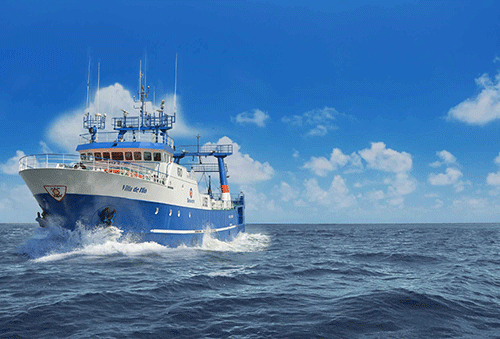The Windhoek High Court has ruled that the application by Seawork Fish Processors to compel a joint venture of six companies to sell its fishing rights only to it and no other parties was financially driven.
Before striking the matter off the court roll and deeming it finalised, acting judge Philanda Christiaan said Seawork Fish Processors failed to explicitly set out the circumstances, which make their case urgent as well as the reasons that demonstrate they will not be afforded substantial redress if their case were to follow the queue.
“I, therefore, take the view that the applicant’s urgency is not only self-created but also self-serving in that the applicant seeks to protect a financial benefit to be derived from the fishing quotas sought to be interdicted,” said Christiaan.
She further indicated the possibility of financial hardship or financial losses does not constitute a ground for urgency.
Seawork Fish Processors wanted the High Court to compel the joint venture, which comprises Fimaro Fishing, Ovatue Fishing, Quito Quanavale Fishing, Uuyamba woShigwana, Indila Fishing and Otjomuru Fishing to honour their 2016 quota participation agreement (QPA) of selling off its quotas to it only.
The company further sought the court to declare the quota allocated in November 2021 and further allocations to Green Rose and/or its shareholders form part of the agreement.
In addition, the court should award Seawork a payment of N$12.8 million in damages.
Seawork claimed that as per the 2016 agreement, Green Rose would sell the fishing rights allocated to it by the fisheries minister exclusively to Seawork for harvest.
Furthermore, the rights shall include any and all bycatch allocated by the ministry.
Because of the exclusive agreement, the parties agreed it would be prudent for Green Rose to acquire 15% shares in Seawork through Namhake.
Green Rose owns 33% shares in Namhake, while Namhake has a 15% stake in Seawork. Namhake acquired the 15% stake in Seawork for N$30.6 million.
Seawork claims it does not understand why Green Rose would not honour the agreement when it made a lot of money through its partnership and shareholding.
Since their agreement six years ago, the joint venture has made about N$80 million.
Seawork claimed the company’s refusal to sell their quotas to them is jeopardising employment for 1 900 seamen.
According to Seawork, they have tried all means not to end up in court.
Seawork was adamant that although the quotas were allocated to individual companies that make up Green Rose, in law, it belongs to Green Rose.
However, the companies that make up the joint venture company, Green Rose Trading have refused to sell their rights at cheaper rates to Seawork.
In addition, they claim Green Rose, with whom the company entered into an agreement currently, does not own fishing rights.
The companies claimed they are not bound by the conditions of the agreement as they were not a party to it.
They said the agreement was concluded between Greenrose and Seawork.
Thus, Seawork is entitled to the fishing rights allocated to Green Rose but not those allocated to the companies in their individual capacities.
According to the companies, they were willing to sell their rights to Seawork but the company offered them low rates.
– mamakali@nepc.com.na


